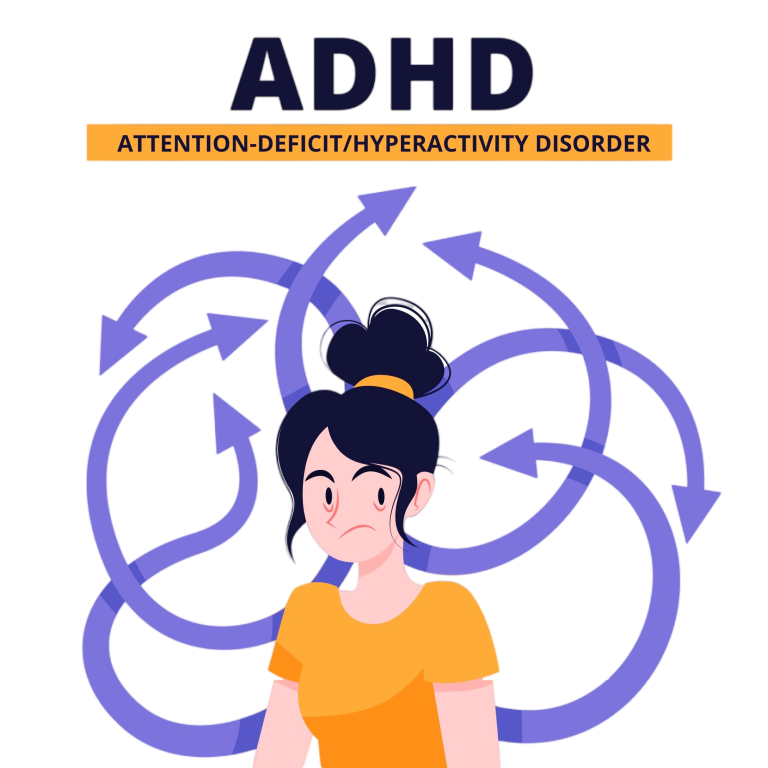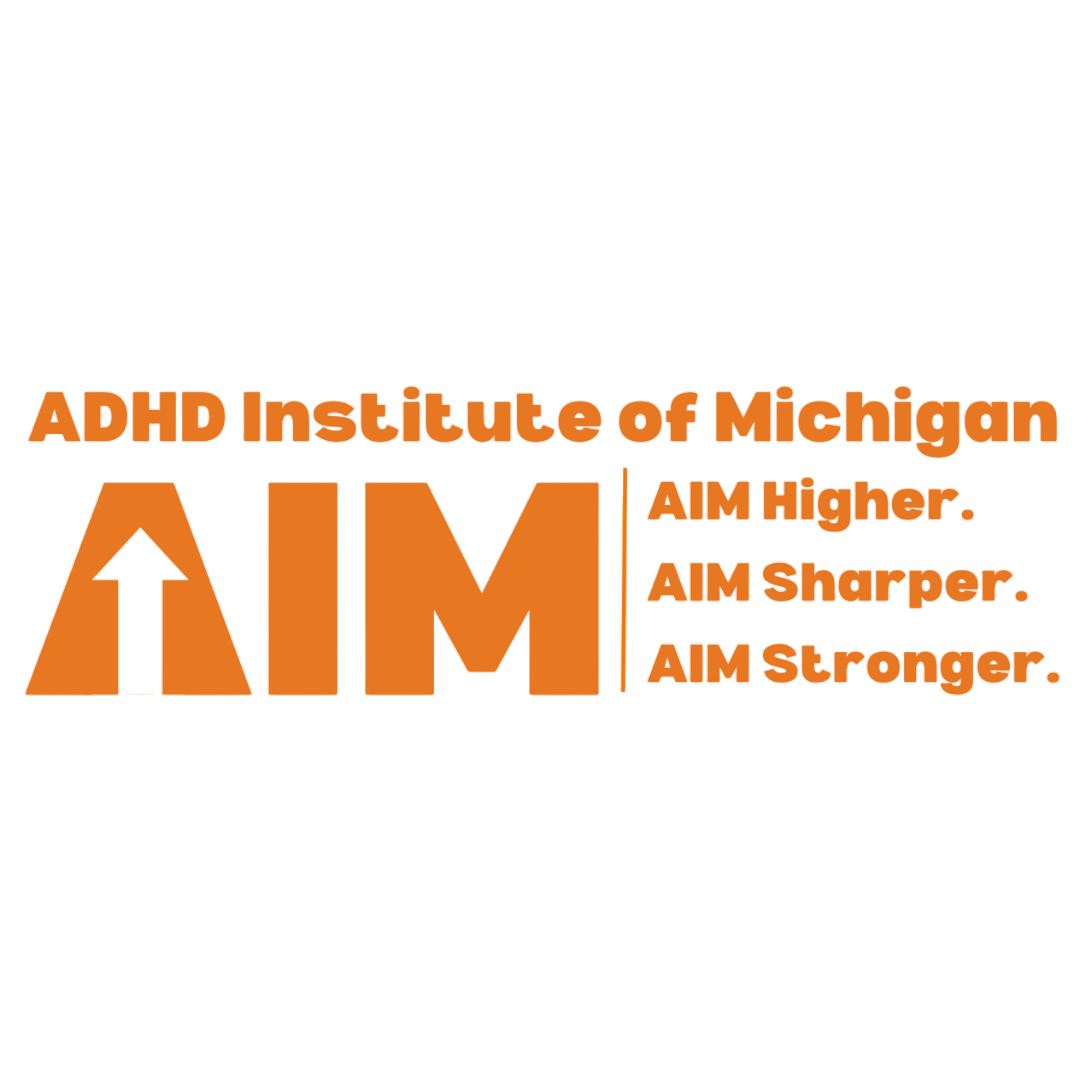Understanding ADHD: Causes, Symptoms, and Solutions
Discover Everything You Need to Know About ADHD – From Its Root Causes to Effective Management Strategies
What is ADHD?
ADHD is also known as Attention Deficit Hyperactivity Disorder. ADHD can adversely affect your performance both at work, home and your relationships if left untreated.
Attention deficit hyperactivity disorder, better known as ADHD or ADD, is a condition that causes problems with a person’s ability to concentrate, get organized, and stay focused. ADHD occurs in both children and adults. Many adults who suffer from ADHD are not aware that they have it.
About 11% of children and 4.4% of adults in the United States are currently reported to be living with ADHD and seeking the help of a local specialist to evaluate and treat their symptoms.

ADULT ADHD
Symptoms of Adult ADHD
People with ADHD may have issues with waking up, getting ready for the day, organizing their day, arriving at work or school on time, problems with time management and can end up spending more time with tasks than their colleagues.
People who suffer from ADHD may tend to have issues with processing instructions or procrastinating and struggling to meet deadlines.
Every patient with ADHD is unique and can present differently and so it is especially important to have a certified provider who has expertise in ADHD to help with treatment. At AIM specialty Center in Westland, Michigan all our providers are certified in the evaluation and treatment of ADHD.
Common triggers include: stress, poor sleep, certain foods and additives, overstimulation, and technology. You can identify the triggers for ADHD symptoms and make lifestyle changes to improve your control
Both disorders cause mood problems, forgetfulness, inability to concentrate, and other symptoms. However, there are some differences. Emotions: ADHD moods are transient, precipitated by a setback. Depression is a common and persistent condition. Motivation: Individuals with ADHD are overwhelmed by deciding what to do
Not at all!
Patients with ADHD tend to flourish in interpersonal interactions, adapt well in fast-paced environments or jobs that are hands-on, and tend to be extraordinarily creative and engaging!
It is true that untreated ADHD can potentially hinder your ability to appropriately manage your time and prioritize tasks without distractions. However, there are various medications options and strategies proven to minimize and manage your symptoms and help you flourish academically or professionally.
You don’t have to feel alone with your ADHD struggles! The most important thing is finding the right provider to discuss with you the best treatment options to help you feel your best and achieve your goals.
The symptoms of hyperactivity are typically most severe at age 7 to 8, gradually declining thereafter. Peak severity of impulsive behavior is usually at age 7 or 8.
ADHD does not usually get worse with age, if the person is aware of the symptoms and knows how they can be managed
Under the ADA, for some patients if determined by your psychiatrist you are an appropriate candidate, you do have certain rights that allow for reasonable accommodations to be requested from your employer or academic institution. These often can include extended time for test taking or work tasks, having a designated area that has minimal external distractions to help you perform at your best.
If your employer fails to cooperate or denies an accommodation request, you have the right to file a complaint with the Equal Employment Opportunity Commission (EEOC). ADHD is not considered any type of a learning disability and there have been no consistent lower scores in IQ for patients that have been diagnosed with ADHD.
Undiagnosed ADHD symptoms are commonly reported as failing to pay attention to details, making careless mistakes, or having difficulty organizing tasks and activities. Ongoing issues with procrastination and prioritization are common such as avoiding tasks that require sustained mental effort.
Other commonly reported ADHD symptoms are forgetfulness, being easily distracted by your surroundings, restlessness, or feeling fidgety
ADHD adults may have difficulty focusing and prioritizing, which can lead to missed deadlines, forgotten meetings, or social plans. The inability to control impulses can range from impatience waiting in line or driving in traffic to mood swings and outbursts of anger.
Signs of ADHD
Most people think of ADD/ADHD a childhood disorder, but this common condition also affects millions of adults. Although 9.4% of kids aged 2-17 have been diagnosed with this brain-based disorder compared with just 4.4% of adults, diagnoses in adults are rising at 4 times the rate seen in children, according to research Experts suggest that many adults are living with undiagnosed ADD/ADHD. This is alarming because untreated adult ADD/ADHD often leads to chronic stress, anxiety, depression, divorce, and job failure. Even more alarming is the fact that studies show ADD/ADHD is considered a risk factor for dementia later in life. This is why it’s so important to know the warning signs of adult ADD/ADHD.
10 SIGNS OF ADULT ADD/ADHD
ADD/ADHD symptoms in adults can be more subtle than those seen in kids, which can make them harder to identify. Here are warning signs of ADD/ADHD.
If you have trouble being able to concentrate for extended periods of time while reading, doing paperwork, or working on a project for your job, it could indicate that ADD/ADHD is to blame.
Adults with ADD/ADHD tend to get bored easily when doing routine chores or wading through tedious material. Conversely, adults with this condition can have laser-like focus when engaged in activities they love.
If you’re often late for work, appointments, and dates, it might be a symptom of ADD/ADHD. In addition to routinely showing up late, adults with this condition tend to have difficulty completing tasks and assignments on time. This can cause problems in the workplace and can prevent you from getting promoted. In some cases, it can lead to demotions or result in being fired.
Do you spend too much of your time searching for where you left your keys, wallet, or phone? If you’re disorganized and have trouble keeping track of where you put things, it may not be a sign of memory loss but rather ADD/ADHD. Misplacing things is linked to a lack of paying attention and disorganization.
Does the idea of planning a big project for work, a birthday party, or preparing your taxes fill you with dread? Does it seem so overwhelming that you don’t know where to start? This can be a sign of the condition because the ADD/ADHD brain has trouble filtering out unimportant external information. This means there is so much data filling your mind at once that it’s challenging to narrow down what needs to be done.
Adults with ADD/ADHD can have trouble with motivation, which means chores and work assignments get put off until the last minute. Do you let things go until a deadline looms—“Oh no, it’s due tomorrow!”—or someone gets mad at you because you haven’t started yet? When workplace issues like this happen repeatedly, it can derail your career.
Do you feel fidgety, keyed up, or agitated? Do you have trouble sitting still or being quiet for extended periods of time? Do you feel uncomfortable in a confined space (not a phobia)? These may all be signs of adult ADD/ADHD.
If you find yourself feeling antsy after a short time at a new job or getting bored quickly in a new relationship, it could be an indicator of ADD/ADHD. People with this brain-based disorder tend to like excitement and novelty, meaning that once a job or fling starts to feel mundane or static, it’s time to bolt or stir things up. Creating drama in the workplace or picking fights with a loved one can serve as a way to stimulate the brain of someone with ADD/ADHD. But this unhealthy tactic ultimately undermines career advancement and ruins relationships.
Do your eyes glaze over when you look at the instructions for installing new software, a recipe with more than a few steps, or the directions for assembling DIY furniture? An inability to listen to and follow directions is one of the clear signs that ADD/ADHD may be involved.
Making silly mistakes, not paying attention to details, and otherwise coming up short on work assignments despite being intelligent and a hard worker may be a tip-off that ADD/ADHD is a factor. Having this condition can also make you more prone to burn out, which drains your energy and prevents you from performing your best. If you feel like you aren’t living up to your potential in your career, you may want to learn more about ADD/ADHD.
Start Today By Booking A Consultation
A New Life With ADHD Treatment Awaits!
Your life won’t be the same after you get the right ADHD treatment; it’s going to be much better.
Managing ADHD is easier than you think. Establish a daily routine, practice mindfulness, and seek support when needed. Visit us periodically for checkups so that we can ensure your treatment plan is working effectively.
In Return, Proper ADHD Treatment Could Reward You With Many Years Of Focused, Productive, And Fulfilled Living!
AIM - ADHD Institute of Michigan
If you have any questions or would like to schedule an ADHD assessment, please contact AIM at (734)-338-6136, via email at info@adhdmich.org
